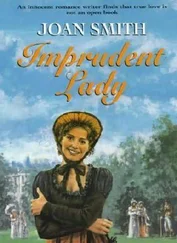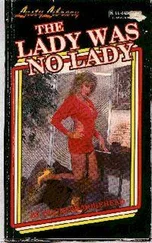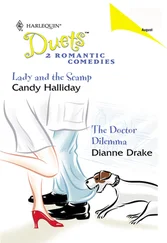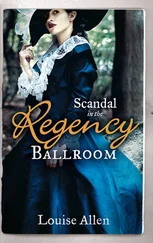“You did some work for Joseph Wechsler, I understand.”
“For who?”
“Joseph Wechsler.”
“Wechsler, Wechsler... Oh, yeah, ’59 Chevy, that’s right. Spray job on the left front fender. Right. I can only remember them by the cars.” He grinned.
“I guess you don’t know what happened to Mr. Wechsler then.”
“I only know what happened to his car,” Manners said.
“Well, he was killed Friday night.”
“Gee, that’s a shame,” Manners said, his face going suddenly serious. “I’m sorry to hear that.” He paused. “An accident?”
“No, he was murdered. Don’t you read the papers, Mr. Manners?”
“Well, I was kind of busy this weekend, I went up to Boston — that’s where I’m from originally — to see this girl I know. So I didn’t see no papers from here.”
“Did you know Wechsler pretty well?”
Manners shrugged. “I think I met him twice. First time was when he brung the car in, and then he come in once while I was painting it. Said the color was a little off. So I mixed a new batch and sprayed the fender again. That was it.”
“Never saw him again?”
“Never. He’s dead, huh? That’s a shame. He seemed like a nice little guy. For a kike.”
Brown stared at Manners levelly and then said, “Why do you say that?”
“Well, he seemed nice,” Manners shrugged.
“I mean, why did you call him a kike?”
“Oh. Why, ‘cause that’s what he was. I mean, did you ever hear him talk? It was a riot. He sounded like he just got off the boat.”
“This spray job you did for him... Did you argue about the color of the paint?”
“Argue? No, he just said he thought the color was a little off, and I said okay, I’ll mix a new batch, and that was it. It’s hard to match exactly. You know. So I done my best.” Manners shrugged. “I guess he was satisfied. He didn’t say nothing when he picked up the car.”
“Oh, then you did talk to him again?”
“No, I only saw him those two times. But if he’d have kicked about the work, I’da heard it from the boss. So I guess he was satisfied.”
“When did you go to Boston, Mr. Manners?”
“Friday afternoon.”
“What time?”
“Well, I knocked off work about three o’clock. I caught the four-ten from Union Station.”
“You go alone, or what?”
“Alone, yeah,” Manners said.
“What’s the girl’s name? The one in Boston?”
“Why?”
“I’m curious.”
“Mary Nelson. She lives in West Newton. If you think I’m lying about being in Boston—”
“I don’t think you’re lying.”
“Well, you can check anyway.”
“Maybe I will.”
“Okay.” Manners shrugged. “How’d he get killed? The kike?”
“Someone shot him.”
“That’s too bad,” Manners said. He shook his head. “He seemed like a nice little guy.”
“Yeah. Well, thanks, Mr. Manners. Sorry to have interrupted your work.”
“That’s Okay,” Manners said. “Any time.”
Brown went to the front of the garage again. He found Batista filling a customer’s gas tank. He waited until he was through and then asked, “What time did Manners leave here Friday afternoon?”
“Two-thirty, three, something like that,” Batista said.
Brown nodded. “This spray job he did for Wechsler. Did Wechsler complain about it?”
“Oh, only about the first color Buddy put on. It didn’t match right. But we fixed it for him.”
“Any static?”
“Not that I know of. I wasn’t here the day Joe came in and told Buddy about it. But Buddy’s an easygoing guy. He just mixed up a new batch of paint, and that was it.”
Brown nodded again. “Well, thanks a lot, Mr. Batista,” he said.
“Not at all,” Batista said. “You sure you don’t want a cigar? Go ahead, take one.” Batista smiled. “For after lunch.”
Carella was downtown at Headquarters watching a parade of felony offenders go through the ritual of the Lineup.
Willis was out talking to known junkies in the neighborhood, trying to get a lead on the addict named Anthony La Scala.
Di Maeo was rounding up two more known criminals who had been arrested by Bert Kling, convicted, and released from prison during the past year.
Kling was at the funeral parlor with Ralph Townsend, making final arrangements for Claire’s burial the next day.
Bob O’Brien was alone in the squadroom when the telephone rang. He absentmindedly lifted the receiver, put it to his ear, and said into the mouthpiece, “87th Squad, O’Brien.” He was in the middle of typing up a report on the results of his barbershop plant. His mind was still on the report when Sergeant Dave Murchison’s voice yanked him rudely away from it.
“Bob, this is Dave downstairs. On the desk. I just got a call from Patrolman Oliver on the South Side.”
“Yeah?”
“He found Meyer beat up on a sidewalk there.”
“Who?”
“Meyer.”
“Our Meyer.”
“Yeah, our Meyer.”
“Jesus, what is this? Open season on cops? Where did you say he was?”
“I already sent a meat wagon. He’s probably on his way to the hospital.”
“Who did it, Dave?”
“I dunno. Patrolman says he was just laying there in his own blood.”
“I better get over to the hospital. Will you call the loot, Dave? And send somebody up here to cover, will you? I’m all alone.”
“You want me to call somebody in?”
“I don’t know what to tell you. There should be a detective up here. You’d better ask the skipper about it. I hate to bust in on a guy’s day off.”
“Well, I’ll ask the loot. Maybe Miscolo can cover till somebody gets back.”
“Yeah, ask him. What hospital did you say?”
“General.”
“I’ll get over there. Thanks, Dave.”
“Right,” Murchison said, and he hung up.
O’Brien put the phone back onto the cradle, opened the top drawer of his desk, took his .38 Police Special from the drawer, clipped it to the left side of his belt, put on his jacket and his hat, made a helpless wide-armed gesture to the empty squadroom, and then went through the slatted rail divider and down the iron-runted steps and past the muster desk where he waved at Murchison, and then out into the October sunshine.
The week was starting fine, all right.
The week was starting just fine.
They picked up Terry Glennon at 4:00. By that time a hardy contingent of bulls had returned to the squadroom, and they surrounded Glennon in casual deceptiveness as he sat in a straight-backed chair asking why he had been dragged into a police station.
Bob O’Brien, who was a most obliging cop, said, “We dragged you into a police station because we think you and some of your buddies beat the crap out of a cop this morning. Does that answer your question?”
“I don’t know what you’re talking about,” Glennon said.
“The cop’s name is Detective Meyer Meyer,” O’Brien went on obligingly. “He is now at General Hospital being treated for cuts and bruises and shock and maybe concussion. Does that make it any clearer?”
“I still don’t know what you’re talking about.”
“That’s okay; play it cool,” O’Brien said. “We got all the time in the world. I went to the hospital around lunchtime and Meyer told me he had paid a little visit to the Glennon household, where a young guy named Terry Glennon got very upset because Meyer was talking to his mother. The mother, according to Meyer, made some sarcastic reference about the young fellow’s friends. Does that ring a bell, Glennon?”
“Yeah, I remember that.”
“How about remembering where you vanished to after you and your buddies ganged up on Meyer?”
Читать дальше
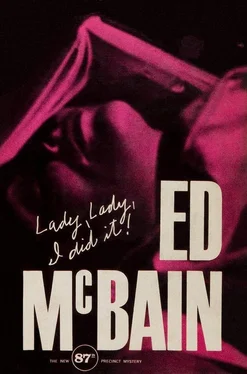
![Дэвид Лоуренс - Lady Chatterley's Lover [С англо-русским словарем]](/books/26613/devid-lourens-lady-chatterley-s-lover-s-anglo-thumb.webp)
